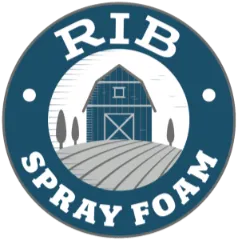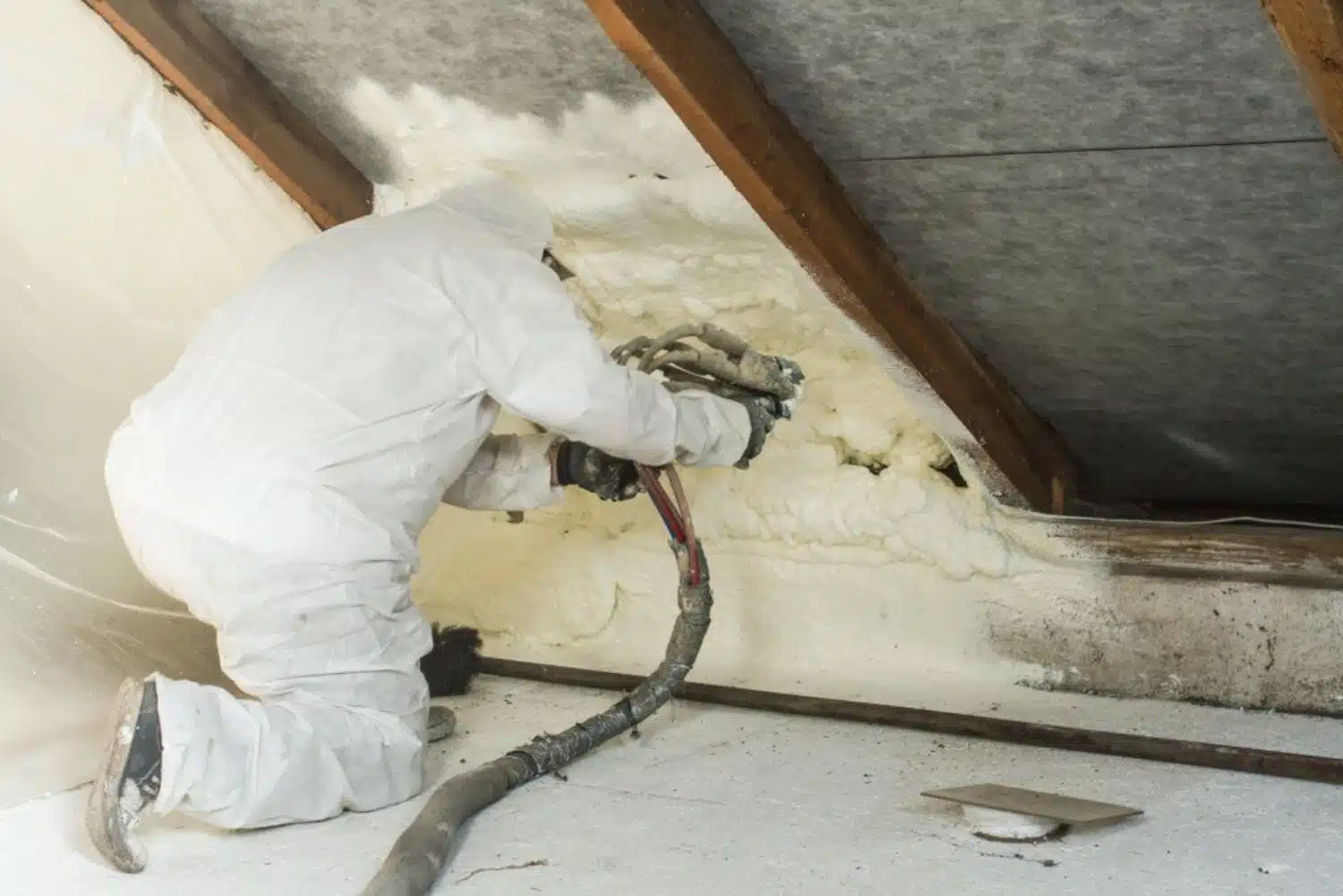Introduction
Spray foam insulation is known for its energy efficiency, air-sealing properties, and long lifespan. Unlike traditional insulation materials, it adheres to surfaces, expands to fill gaps, and creates a continuous barrier against heat loss and moisture infiltration. But how long does spray foam insulation actually last? Understanding its durability and performance can help homeowners and businesses make informed decisions.
Lifespan of Spray Foam Insulation
Spray foam insulation is designed to be a long-term solution for improving a building’s thermal performance. The two main types, open-cell and closed-cell spray foam, have different characteristics but both offer impressive longevity.
Expected Longevity
- Properly installed spray foam insulation can last 50 years or more.
- Unlike fiberglass or cellulose, spray foam does not sag or degrade quickly over time.
- Its lifespan is influenced by factors like installation quality, environmental conditions, and exposure to moisture or UV light.
Open-Cell vs. Closed-Cell Durability
| Feature | Open-Cell Spray Foam | Closed-Cell Spray Foam |
|---|---|---|
| Lifespan | 30-50 years | 50+ years |
| Moisture Resistance | Absorbs moisture | Resists moisture |
| Structural Strength | Less rigid | Adds structural strength |
| Thermal Efficiency | Moderate | High |
Closed-cell spray foam is denser and offers better resistance to water and air infiltration, making it more durable in extreme conditions. Open-cell spray foam, while still long-lasting, is best suited for interior applications where moisture exposure is minimal.
Factors Affecting Longevity
Installation Quality
Poor installation can significantly shorten the lifespan of spray foam insulation. Common mistakes include:
- Improper mixing of chemicals
- Incorrect application thickness
- Insufficient curing time
Hiring a professional installer ensures the foam adheres properly and provides optimal insulation performance.
Environmental Conditions
While spray foam insulation is resistant to most environmental factors, exposure to certain elements can affect its longevity:
- Moisture: Closed-cell foam provides superior moisture resistance, making it ideal for areas prone to high humidity or water exposure.
- UV Radiation: Direct sunlight degrades spray foam over time. A protective coating or covering prevents UV damage.
- Extreme Temperatures: Spray foam remains effective across a wide range of temperatures, but prolonged exposure to high heat or freezing conditions may impact its structure.
Structural Changes
Renovations, plumbing, or electrical work that disturb spray foam can reduce its effectiveness. If sections are removed or damaged, they should be repaired promptly to maintain insulation integrity.
Performance Over Time
Spray foam insulation maintains its thermal performance better than traditional materials. Over decades, some minor shrinkage or settling may occur, but this is minimal compared to other insulation types.
Energy Efficiency Retention
- Spray foam retains its R-value (thermal resistance) for decades, unlike fiberglass or cellulose, which degrade over time.
- Helps maintain consistent indoor temperatures, reducing heating and cooling costs.
Air Sealing Capability
- Unlike batt insulation, spray foam creates an airtight seal that does not break down easily.
- Prevents drafts, moisture infiltration, and air leaks that could compromise insulation performance.
Maintenance and Upkeep
Spray foam insulation requires minimal maintenance, but occasional inspections can help ensure long-term efficiency.
Inspection Checklist
- Check for visible damage or gaps, especially after renovations.
- Ensure areas exposed to sunlight have adequate protection.
- Monitor humidity levels in closed spaces to prevent moisture buildup.
If any damage is detected, reapplication or patching may be necessary. Professional installers can assess and repair affected areas.
Choosing the Right Insulation for Longevity
When selecting spray foam insulation, consider the specific needs of your property. Closed-cell spray foam is best for high-moisture environments and structural reinforcement, while open-cell is ideal for soundproofing and indoor applications.
For expert guidance, RIB Spray Foam offers professional installation services tailored to your needs. Contact us at (970) 645-8077 or email [email protected] for a consultation.
Conclusion
Spray foam insulation is a long-lasting and highly effective solution for improving energy efficiency, air sealing, and moisture resistance. With a lifespan of 50 years or more, it outperforms traditional insulation materials. Whether for new construction or retrofitting an existing space, investing in high-quality spray foam ensures long-term performance.
For professional installation and expert advice, contact RIB Spray Foam at (970) 645-8077 or [email protected].
FAQs
1. Does spray foam insulation break down over time?
No, spray foam insulation does not degrade quickly. It can last 50 years or more with proper installation and minimal exposure to damaging elements.
2. Can spray foam insulation be removed or replaced?
Yes, but removal can be labor-intensive. If insulation needs to be replaced, professional removal is recommended to avoid damage to surrounding structures.
3. How does spray foam insulation compare to fiberglass?
Spray foam lasts significantly longer than fiberglass, does not sag, and provides better air-sealing and moisture resistance.
4. Is closed-cell spray foam better than open-cell for durability?
Yes, closed-cell spray foam is denser, more resistant to moisture, and structurally stronger, making it the better option for long-term durability.
5. Can spray foam insulation get moldy?
Spray foam itself does not support mold growth, but if moisture is trapped behind improperly installed foam, mold can develop on underlying materials.
6. Will spray foam insulation shrink over time?
Minimal shrinkage may occur due to environmental factors, but professionally installed spray foam maintains its shape and effectiveness.
7. How often should spray foam insulation be inspected?
An inspection every few years is sufficient unless damage or environmental issues arise.
8. Does spray foam insulation help with noise reduction?
Yes, open-cell spray foam provides excellent soundproofing, making it a great option for walls and ceilings in residential spaces.
9. Can spray foam insulation be installed in older homes?
Yes, it is an effective upgrade for older homes, improving energy efficiency and air sealing.
10. What happens if spray foam insulation is exposed to water?
Closed-cell spray foam resists water and remains effective, while open-cell may absorb moisture and require drying or replacement in extreme cases.



